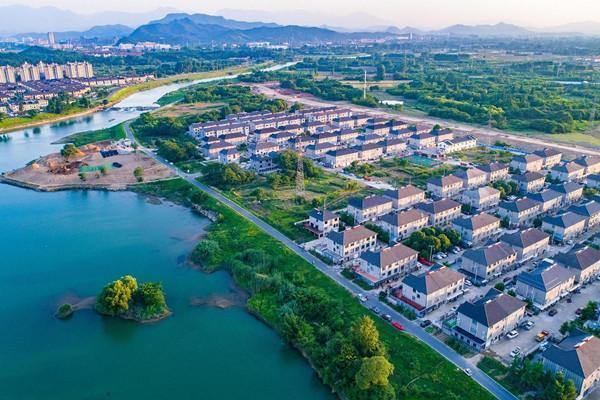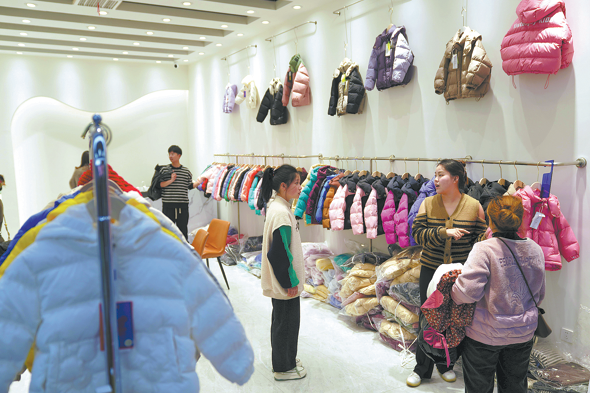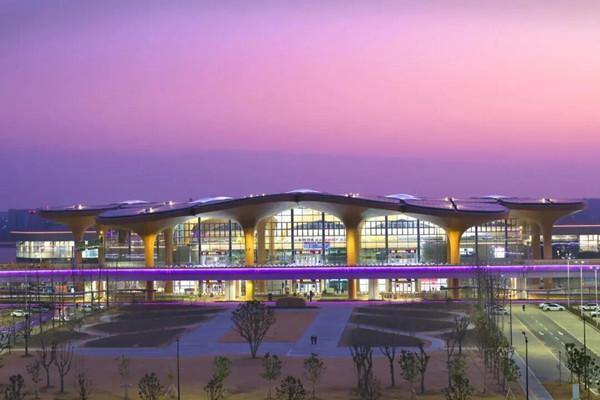Editor’s Note: As more and more foreigners choose to settle down in Zhejiang, they are also attracted by the splendid culture, intriguing sceneries, and vibrant e-commerce economy. More stories of foreigners’ engagement in understanding Chinese traditional culture and promoting cultural exchanges can be found in today’s coverage of “Zhejiang Highlights”.
1. Expat enchanted by Chinese wedding culture in Ninghai
As a Communication Officer for Ningbo, a title granted by the local government in April to encourage expats in Ningbo to tell stories about the city from their point of view, Seyedeh Sara Ahmadi Nishaboori from Iran was invited to Ninghai county to experience the local culture, "Ten-mile Red Dowry".
The "Ten-mile Red Dowry" wedding custom, listed as a national cultural heritage, is so-named because, on wedding days in the past, the bride would bring dowries such as clothes, shoes, furniture, and tableware to the groom's home. The dowries were put in red-lacquered boxes and carried by 38 bearers in a line which stretched for miles. Nishaboori shared her experiences in Ninghai on social media, saying she will promote Ningbo's art, life, and culture to the world as well as to other expats living in China.
2. Chinese, foreign anchors promote Wenzhou via e-commerce livestream shows
The Wenzhou Overseas Media Center recently announced the launch of a series of e-commerce livestream shows that feature Chinese and foreign anchors promoting special local products, local media outlets reported. The first episode, which was hosted by foreign anchor Akmal and Wenzhou native Cai Chaojun, showed online viewers the agricultural industry of Lucheng district's Tengqiao town, which has been hailed as a model in the promotion of agricultural reform in rural areas.
The live show introduced to online viewers a variety of local agricultural products such as handmade dried bamboo shoots, smoked chicken, vegetarian noodles, black bean wine, Hongniang wine, and organic vegetables. "I'm glad to visit Tengqiao and have the opportunity to step into paddy fields and sample authentic and fresh agricultural products," said Akmal. "The beautiful landscapes in the fields remind me of my hometown. I really enjoyed the experience."
3. Zhejiang hosts conference promoting Song Dynasty culture
Zhejiang province authorities hosted a high-profile work conference in the provincial capital of Hangzhou on Nov 11 to promote Song Dynasty (960-1279) culture in six aspects, namely theoretical research, archaeological excavations, cultural relic sites preservation, cultural tourism, culture brand marketing, as well as publicity. Song Dynasty culture was characterized in eight phrases: valiant patriotism; a scholar-bureaucrat tradition that features a strong sense of responsibility; humanistic pragmatism; an emphasis on overseas trade; elegant life aesthetics; a colorful urban lifestyle; art innovations with far-reaching influences; as well as technological advancements that are represented by the three great inventions of movable-type printing, the compass, and black gunpowder.
Greater efforts will be made to carry out archaeological studies and preservation work on Song Dynasty relic sites like the remains of city walls and palaces, the graveyards of well-known politicians, royal kilns, Buddhist temples, as well as stone carvings.
4. Global oil conference illustrates Zhoushan's growing influence
The IPEC 2021 & Commodity Investment and Trade Promotion Month in Zhoushan, Zhejiang province, served as a platform for exchange and cooperation in the global oil industry, senior officials said. As one of the provinces with the highest per capita income in China, Zhejiang has always been among the top in the country for consumption capacity and level of oil and gas. Zhoushan is located on the main international waterway of the Western Pacific Ocean. During the first three quarters of this year, Zhoushan achieved 3.83 million metric tons of international ship bunkering and 8.21 million tons of bonded fuel oil settlement, making it the sixth-largest bunkering port in the world.
Lu Pengqi, the vice-chairman of the China Council for the Promotion of International Trade, said: "In the future, we will continue to play the role in connecting governments and enterprises, matching supply and demand, and providing professional and international public services for trade and investment cooperation between Chinese and foreign enterprises. We will also continue to support the innovative development of the Zhejiang Pilot Free Trade Zone."
5. Archaeological site in Quzhou records new history
According to history records, a kingdom called Gumie once existed 3,000 years ago in today's Jinhua and Quzhou area of East China’s Zhejiang province. However, there were few written records left about the kingdom. A tomb unearthed in Quzhou in 2018 has recently been proved to be "very likely" the royal tomb of Gumie kingdom.
Zhang Sen, an archaeologist in Zhejiang, said that the tomb is the largest existing tomb of the Western Zhou Dynasty (c.11th century- 771BC). "The exquisite burial objects, large scale and particular way of construction all revealed that the owner of the tomb must be someone noble. It is very likely to be the royal tomb of Gumie kingdom," said Zhang.
Editor: Huang Yan




